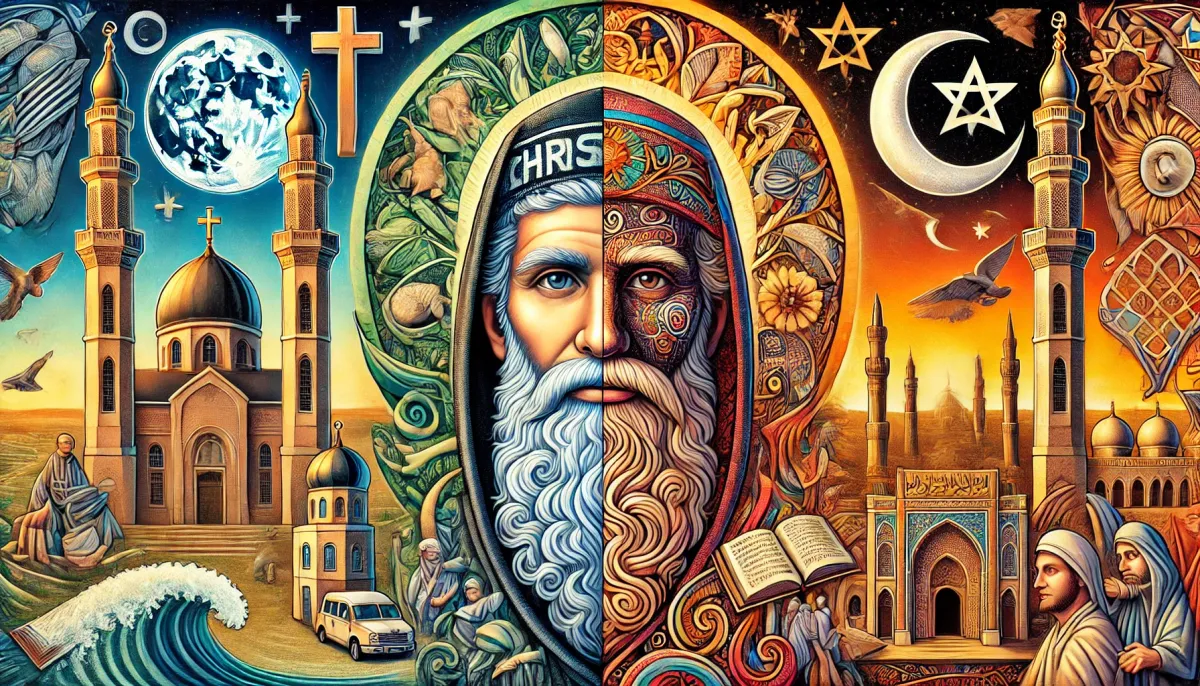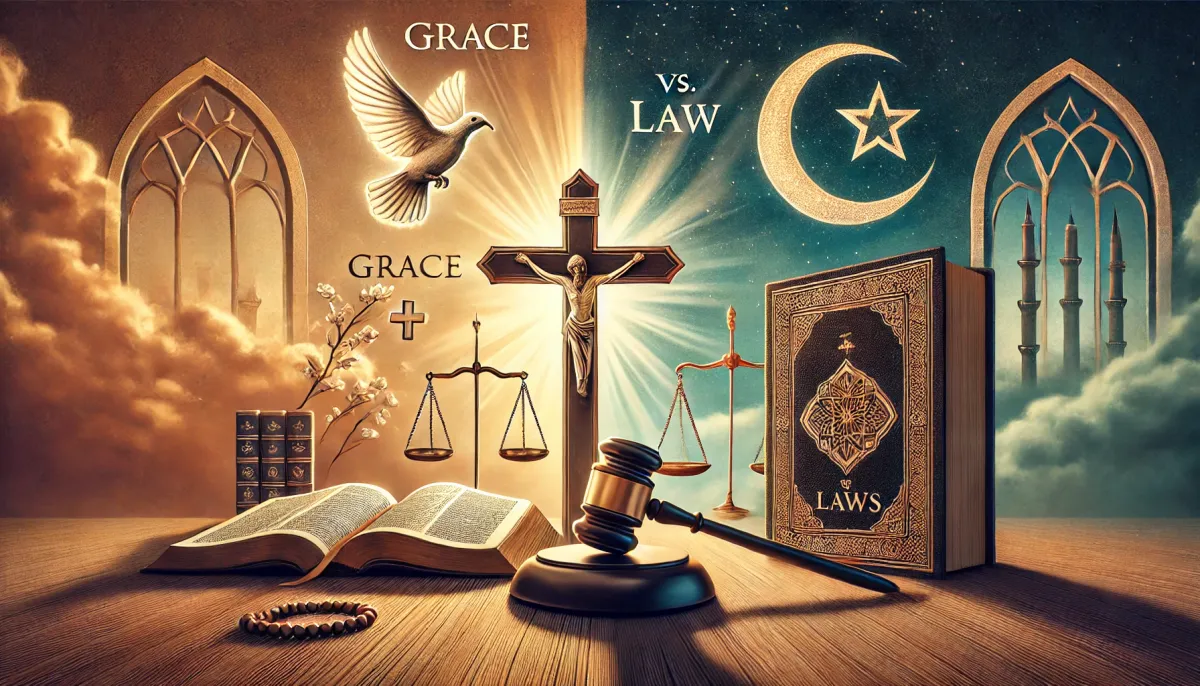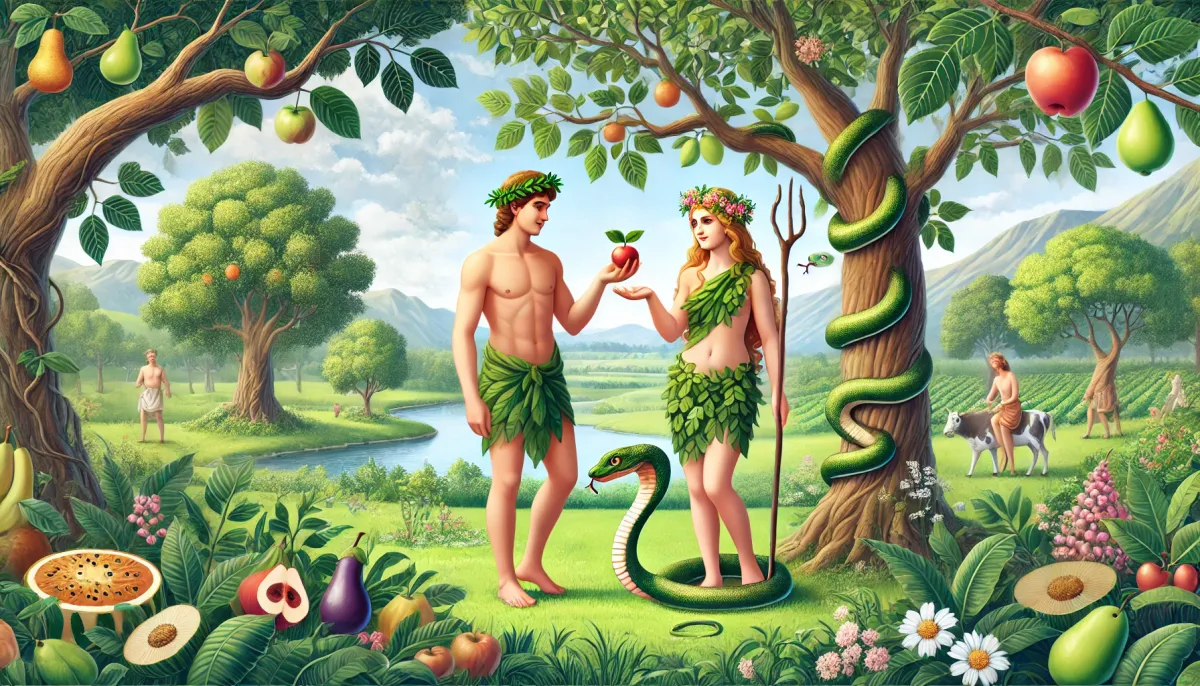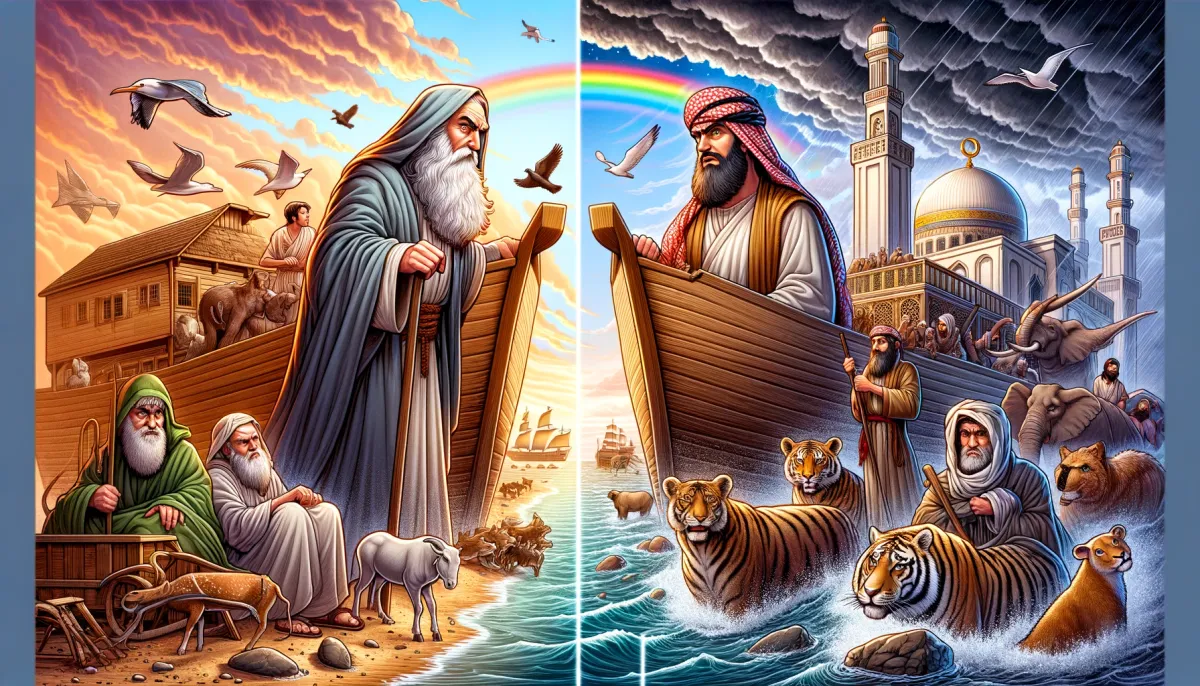

By Dr. Tim Orr
Abraham stands as a towering figure in the religious landscape, a patriarch revered by billions across the globe. Yet, how he is understood within Christianity and Islam reveals deep theological divergences that shape the core of each faith. This article aims to show the stark contrasts between the Christian view of Abraham and the Islamic perspective, highlighting the richness and depth of the Christian narrative.
Abraham in the Christian View
From a Christian perspective, Abraham is more than a historical figure; he is the father of the faith and a vital link in God's redemptive plan. His story in the Bible, particularly in Genesis, points forward to the fulfillment of God's promises through Jesus Christ.
- The Promise and the Covenant: In Genesis 12:1-3, God calls Abraham to leave his homeland with the promise to make him a great nation. This covenant includes the assurance that all nations would be blessed through him, a promise ultimately realized in Jesus Christ (Galatians 3:8). This blessing is not just for a select few but for all humanity, demonstrating the inclusive and universal nature of God's plan in Christianity (Wright, 2006). The covenant is reiterated and expanded in Genesis 15 and 17, where God promises Abraham numerous descendants and the land of Canaan. This covenantal relationship is central to understanding God's unfolding plan of salvation (Sailhamer, 1992).
- Faith and Righteousness: Genesis 15:6 states, "Abram believed the LORD, and he credited it to him as righteousness." This verse is central to Christian theology, emphasizing that righteousness comes through faith, not works. Paul echoes this in Romans 4:3 and Galatians 3:6, teaching that Abraham's faith, rather than his deeds, justified him before God, prefiguring the doctrine of justification by faith in Christ. This starkly contrasts the Islamic emphasis on works and rituals for salvation (Bruce, 1982). Abraham's faith is further tested in the narrative of the binding of Isaac, where his willingness to obey God even to the point of sacrificing his son demonstrates the profound trust and obedience that characterizes genuine faith (Longman & Garland, 2008).
- The Sacrifice of Isaac: The near-sacrifice of Isaac (Genesis 22) is a profound act of faith and obedience. Christians view this event as foreshadowing God's ultimate sacrifice of His Son, Jesus. Isaac carrying the wood for his sacrifice parallels Jesus carrying the cross, and God's provision of a ram as a substitute highlights Christ's substitutionary atonement (Kaiser, 1995). This typology is absent in the Islamic narrative, which lacks the depth and foreshadowing of Christ's ultimate sacrifice. The willingness of Abraham to sacrifice Isaac and Isaac's submission reflects the future sacrifice of Jesus and His submission to the Father's will, underscoring the unity and continuity of the biblical narrative (Bauckham, 2003).
- Isaac and Ishmael: While Isaac is seen as the child of promise through whom the covenant would be established (Genesis 17:19), Ishmael is also acknowledged but in a different role. Christians believe that through Isaac, God's promises to Abraham regarding a multitude of descendants and the blessing to all nations would be fulfilled, culminating in Jesus Christ (Hamilton, 1990). The Islamic focus on Ishmael diverts from the true biblical lineage and promise. The birth of Isaac to Sarah in her old age is a testament to God's miraculous intervention and faithfulness to His promises, further solidifying the legitimacy of the covenant through Isaac (Wenham, 1994).
Abraham in the Islamic Perspective
Abraham (Ibrahim) is also a revered prophet in Islam, but the narrative and theological emphasis diverge significantly, often diluting the profound biblical truths.
- Monotheism and Prophethood: Abraham is depicted in the Qur'an as a key figure in the establishment of monotheism. Surah 2:124-130 emphasizes Abraham's rejection of idolatry and the establishment of pure worship of Allah. While monotheism is a shared value, the Islamic narrative lacks the Bible's relational depth and covenantal promises, reducing Abraham's role to mere submission rather than a dynamic relationship with God (Rahman, 2009). The Islamic portrayal of Abraham focuses heavily on his role as a prophet who called people to worship Allah alone. Still, it does not emphasize the covenantal relationship central to the biblical narrative (Watt, 1961).
- The Covenant and Ishmael: Islam emphasizes Abraham's firstborn son, Ishmael, as the child of promise, diverging from the biblical narrative. Surah 37:100-113 recounts the story of Abraham's willingness to sacrifice his son, which Islamic tradition identifies as Ishmael. This narrative shift undermines the continuity of God's redemptive plan through Isaac, leading to theological confusion that contradicts the clear biblical teaching (Lings, 1983). The Qur'anic narrative of Ishmael as the son to be sacrificed lacks the typological connection to Christ's sacrifice that is integral to the Christian understanding of redemption (Neuwirth, 2010).
- Hajj and Ritual Practices: Abraham's significance in Islam extends to various rituals and practices, especially the Hajj pilgrimage. Muslims believe that Abraham and Ishmael built the Kaaba in Mecca (Surah 2:127). The Hajj rituals, including the sacrifice of an animal during Eid al-Adha, commemorate Abraham's willingness to sacrifice his son and God's provision of a ram. However, these rituals emphasize works and external practices over internal faith and trust in God's promises, as highlighted in the Christian narrative (Esposito, 2011). The Islamic rituals associated with Abraham focus on obedience and submission, but they lack the deeper theological implications of God's redemptive plan that are present in the Christian narrative (Rippin, 1990).
Theological Divergence: Salvation and Covenant
The Christian view of Abraham highlights the continuity of God's redemptive plan through the lineage of Isaac, culminating in Jesus Christ. The promise to bless all nations through Abraham is fulfilled in the Great Commission (Matthew 28:19-20), where the gospel is preached to all nations. This universal offer of salvation through faith in Christ starkly contrasts the Islamic system of works and rituals (Piper, 1999). The Christian understanding of Abraham's covenant underscores God's grace and the necessity of faith for salvation, a theme consistently developed throughout the New Testament (Ridderbos, 1997).
In contrast, the Islamic perspective emphasizes Abraham's role in establishing monotheism and submission to Allah, focusing on the physical lineage through Ishmael leading to the Islamic faith. Salvation in Islam is achieved through adherence to the Five Pillars and submission to Allah's will, contrasting sharply with the Christian emphasis on faith in Christ alone for salvation (Saeed, 2006). The Islamic narrative of Abraham focuses on human efforts to achieve righteousness, whereas the Christian narrative emphasizes God's initiative and grace in bringing about salvation (Cragg, 1999).
Conclusion
Abraham's story serves as a theological battleground, revealing the profound differences between the Christian view and the Islamic narrative. For Christians, Abraham's story is a precursor to the gospel of Jesus Christ, emphasizing faith, righteousness, and God's redemptive plan for humanity. In Islam, Abraham embodies submission and monotheism, with a narrative that obscures the true biblical lineage and divine promises. Understanding these differences is crucial for meaningful dialogue and engagement between Christians and Muslims. As we delve deeper into these narratives, we are reminded of the richness of the Christian faith and the ultimate fulfillment of God's promises in Jesus Christ, offering salvation and eternal life to all who believe.
References
Bauckham, R. (2003). Jesus and the Eyewitnesses: The Gospels as Eyewitness Testimony. Eerdmans.
Bruce, F. F. (1982). The Epistle to the Galatians. Eerdmans.
Cragg, K. (1999). The Qur'an and the West. Georgetown University Press.
Esposito, J. L. (2011). Islam: The Straight Path. Oxford University Press.
Hamilton, V. P. (1990). The Book of Genesis, Chapters 1-17. Eerdmans.
Kaiser, W. C. (1995). The Messiah in the Old Testament. Zondervan.
Lings, M. (1983). Muhammad: His Life Based on the Earliest Sources. Inner Traditions.
Longman, T., & Garland, D. E. (2008). The Expositor's Bible Commentary: Genesis-Leviticus. Zondervan.
Neuwirth, A. (2010). Scripture, Poetry, and the Making of a Community: Reading the Qur'an as a Literary Text. Oxford University Press.
Piper, J. (1999). Desiring God: Meditations of a Christian Hedonist. Multnomah.
Rahman, F. (2009). Major Themes of the Qur'an. University of Chicago Press.
Ridderbos, H. (1997). Paul: An Outline of His Theology. Eerdmans.
Rippin, A. (1990). Muslims: Their Religious Beliefs and Practices. Routledge.
Saeed, A. (2006). Interpreting the Qur'an: Towards a Contemporary Approach. Routledge.
Sailhamer, J. H. (1992). The Pentateuch as Narrative. Zondervan.
Watt, W. M. (1961). *Muhammad: Prophet and States
The ideas in this blog are mine, but AI was used to help create the content.



